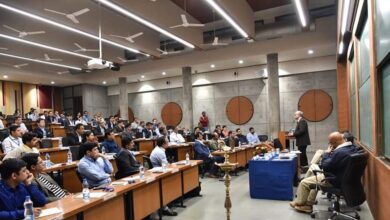Are New-Age Business Schools Replacing the MBA in India?
A new breed of business schools is challenging, and in some cases, replacing the traditional MBA.

New-Age Business Schools: For years, the MBA was the golden opportunity to climb India’s corporate ladder. A seat at a top IIM or XLRI meant a passport to corner offices and fat pay packages. However, the rules of the game are changing. A new breed of business schools is challenging, and in some cases, replacing the traditional MBA.
The MBA’s Waning Shine
The MBA in India is no longer the career-guaranteed rocket it once was. Recruiters complain that graduates are equipped with theoretical knowledge but are weak on practical skills. Meanwhile, students are questioning the ₹20-30 lakh fees and the two-year timeline. “By the time the traditional MBA curriculum gets updated, the market has moved on. We need people who can get down to business on the ground, not spend a year learning 1980s models,” says a senior HR head at a tech major.

New-Age Business Schools: What Makes Them Different:
The rise of new-age business schools, like ISB Hyderabad, Masters Union, Great Lakes Institute of Management, Jindal Global Business School, BITSoM, SDA Bocconi, HSB, and even ed-tech institutes like upGrad and Emeritus, are rewriting the MBA paradigm.
What Makes Them Different:
+ Shorter programs: Most are 12-18 months long, reducing both time and cost.
+ Direct industry experience: Courses are co-designed with companies like Microsoft, Razorpay, and McKinsey. Students work on real-world projects instead of old case studies.
+ Future-focused specializations: Instead of the usual HR or operations, they focus on AI, digital finance, and product management.
+ Startup-style learning: Hackathons, sprints, and internships take precedence over chalk-and-talk lectures.
It’s a formula that resonates with a young workforce that doesn’t just want a degree; it wants relevance.
Specialisations That Matter:
In today’s job market, specialisation is the new normal. Some of the most popular sectors driving this shift include:
+ Digital product management: With over 100 unicorns in India, skilled product managers (PMs) are as coveted as CTOs.
+ Fintech: As UPI and digital lending are transforming finance, graduates who understand both tech and compliance are being valued.
+ AI and business analytics: From retail to logistics, every sector needs professionals who can turn data into decisions.
+ Sustainability and ESG: Global companies in India want managers who combine profit with responsibility.
+ Healthcare management: Post-COVID, healthcare leaders with business acumen are in demand.
According to LinkedIn’s 2024 India Jobs Report, AI, analytics, and fintech roles are among the fastest-growing sectors where traditional MBAs offer little preparation.
| Why This Shift is Real: The allure of new-age B-schools is more than just hype. Their graduates often get a fast ROI, placements within a year, often in roles with salaries comparable to those of a traditional MBA. Their agility also makes them attractive. While established B-schools grapple with bureaucratic curriculum, these new institutes change their curriculum every year to suit market needs. |
In Short:
The prestige of the traditional MBA is not vanishing overnight. The IIM brand still holds its importance. But the monopoly is gone. As employers shift focus from pedigree to skills, new-age B-schools could become the new path for India’s management talent. The manager of the future in India will not be a jack of all trades with a two-year MBA. They will be a specialist, trained fast, sharpened and trained for the future.

Also Read: Discover The Top MBA Colleges in India With The CMI MBA Ranking 2025





